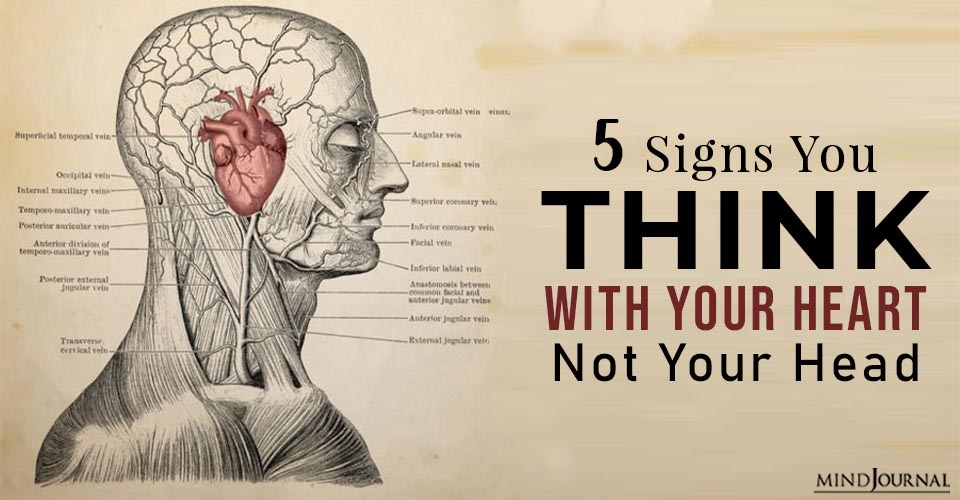What does it mean to be someone who prefers to think with your heart over your head? It means that you’re passionate. You love with openness and without restriction. You’re not afraid to tell people how you feel, to jump headfirst into relationships that feel right, and to give someone your full heart.
Sometimes’s it’s necessary that you led the path dictated by your heart. Simply to let go of your fear that comes from rational and practical thought, you need to take the risks and make choices based on the voice of your heart instead of your mind. If this sounds like you, then you might be someone who is heart-led.
“Follow your heart and intuition. They somehow already know what you truly want to become. Everything else is secondary.” — Steve Jobs
Here are 5 signs you’re better at following your heart than most people (and why this is a beautiful thing).
1. You’re Not Afraid To Say ‘Yes’ To Commitments.
When you’re someone who likes to think with your heart over your head, you’re not afraid to jump into a relationship or connection with another person. While other people caution you to be ‘smart’ or to be ‘safe’ when it comes to love, you’re the person who smiles, nods, and continues to move forward into what you feel is right.
Some people may consider you to be ‘reckless’ but you don’t agree. To you, love is always worth the risk, and so you step forward towards a person who feels right because missing out on a potential connection is far worse than it ending up not working out in the end.
Read 4 Reasons Why Emotionally Damaged People Screw Up Love
2. You Consider Yourself To Be An Emotional And Passionate Person.
You’re the person that everyone considers to be ‘emotional.’ But even if they scoff with judgment when they say this about you, it’s actually a beautiful thing.
Because you’re an emotional person, you are far more in tune with people’s feelings. You are more empathetic, loving, and a better partner than most.
3. You Listen To Yourself.
If you’re a person who tends to think with your heart and not with your head, you are easily able to listen to what you believe rather than the words of others. Even when people try to share their well-meaning advice or opinions, you are able to stay true to yourself.
In the end, that’s what matters the most.
Read 15 Ways To Be Kind To Yourself (Especially When Feeling Down)
4. You Tend To Not Overthink Situations To Death And Instead Go With What You Feel.
You aren’t the type of person who overthinks in love. When you feel that something is right, you move forward (and vice versa).
Because you are led by your heart, you know when something makes sense or when it doesn’t—and this is your moral compass.
5. You’re Not Scared To Love Again, Even If You’ve Been Hurt.
No matter what has happened to you, at the end of the day, you are self-aware, secure, and willing to love again. You fully acknowledge your pain and allow yourself to heal, but you don’t let past people and relationships dictate your future.
Read Why The Strongest Girls Feel Things The Deepest
You are led by your heart over your head, and because of this, you walk forward with confidence.












Leave a Reply